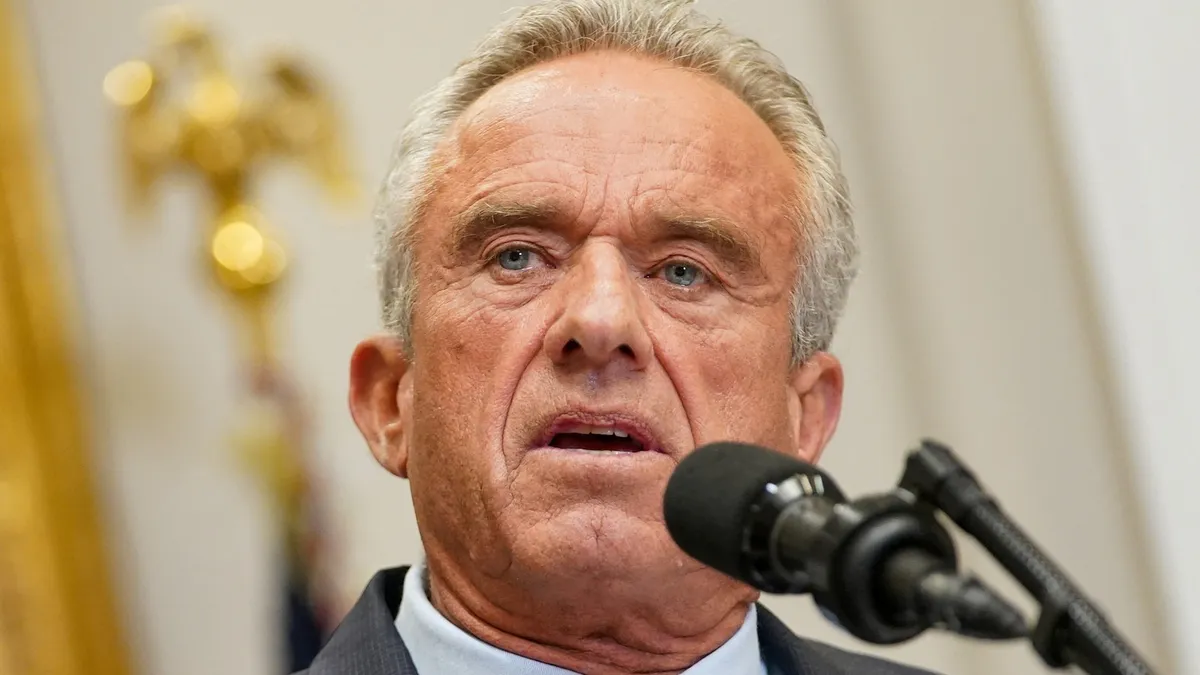
Health and Human Services Secretary Robert F. Kennedy Jr. is scheduled to testify before two congressional committees on Wednesday, addressing key issues including the impact of the Trump administration's proposed budget on HHS. Kennedy will first appear before the House Appropriations Committee in the morning, followed by a session with the Senate Health, Education, Labor, and Pensions (HELP) Committee in the afternoon.
Last month, the HELP Committee summoned Kennedy to discuss the ongoing restructuring within the department. In April, HHS initiated a significant workforce reduction, laying off approximately 10,000 employees and consolidating 28 institutes and centers into just 15 divisions. This restructuring is expected to reduce the overall staff at HHS from 82,000 to around 62,000, representing a substantial decline of nearly a quarter of its workforce.
In a video statement shared on X prior to these layoffs, Kennedy emphasized his intention to instill a clear mission within HHS, aiming to radically improve the health of Americans and enhance agency morale. While he has defended these cuts as necessary to eliminate wasteful spending within one of America’s largest departments, he has faced backlash for the layoffs of personnel responsible for critical functions such as regulating tobacco use, monitoring childhood lead exposure, and diagnosing black lung disease in miners.
Interestingly, Kennedy himself has shown uncertainty regarding some of the layoffs. In an interview with CBS News last month, he admitted he was not familiar with several of the specific cuts reported. This Wednesday's testimony will mark Kennedy's first appearance before Congress since his confirmation hearings in late January, where he may need to address statements critics claim reflect promises unfulfilled.
During his January hearing, Kennedy repeatedly affirmed his support for vaccinations, although he hesitated to categorically state that vaccines do not cause autism, despite numerous studies disproving this link. "I support the measles vaccine. I support the polio vaccine. I will do nothing as HHS secretary that makes it difficult or discourages people from taking either of those vaccines," he stated.
However, in March, the HHS confirmed that the Centers for Disease Control and Prevention (CDC) would investigate whether vaccines could potentially cause autism. Compounding this issue, the U.S. is currently facing multiple measles outbreaks, with over 1,000 reported cases this year alone. Kennedy has expressed conflicting views on vaccines, including a post on X on April 6, where he acknowledged that the most effective way to prevent measles is through the measles, mumps, rubella (MMR) vaccine. Yet, he later claimed that over 300 children had been treated with unrecognized measures for measles, further fueling confusion surrounding his stance.
Kennedy's past support of anti-vaccine sentiments nearly jeopardized his confirmation, as he encountered resistance from Louisiana Republican Senator Bill Cassidy, a physician and head of the HELP committee. Cassidy voiced concerns regarding Kennedy's vaccination views but ultimately supported his confirmation in February after Kennedy assured him that he would not alter vaccine policy without solid scientific evidence. Cassidy has maintained regular communication with Kennedy, speaking multiple times weekly, and currently does not believe the Secretary has breached the commitments made to him.
An HHS spokesperson reaffirmed that Kennedy "maintains a professional and respectful relationship with Senator Cassidy, grounded in a shared commitment to public health and evidence-based policymaking.” Cassidy is expected to remind Kennedy on Wednesday of the importance of setting the record straight regarding HHS's ongoing critical functions and the necessary changes that will affect Americans' health, according to remarks obtained by ABC News.
This testimony not only represents a pivotal moment for Kennedy but also underlines the ongoing debates surrounding public health policy and the future direction of HHS amidst significant workforce changes.